
In Zimbabwe’s fast-growing online economy, a website is more than just a digital presence—it’s a potential income stream. Whether you run a blog, e-commerce store, or service-based site, there are proven ways to monetise a website in Zimbabwe and turn visitors into paying customers.
This guide will show you practical methods and tips to help you make money online in Zimbabwe.
Some methods I have used them while others I haven’t.
Before we start let’s clarify some things.
Is Online Business Lucrative?
Zimbabwe is not there yet when it comes to online experiences and usage. Social media is the primary platform most people use for online advertising and marketing.
However, some online aspects, such as websites, SEO, and proper email marketing, are still not fully mature, therefore less competitive (especially when targeting local)
When it comes to making money online from a website in Zimbabwe, you need to understand traffic sources.
- Search Engines (Google/Bing): This is where you need to put more focus on, as search engines help you drive targeted traffic (people) automatically. You optimise your website to rank high so that your website is clicked when people search. With SE,O your website is also present globally tapping into a pool of potential traffic.
- Social media: Social media can help drive traffic. However, it is a more outbound approach that needs you to push the website directly instead of inbound, where people come on their own through searches.
- Word of mouth: Works, but limited reach.
- Paid advertising (sponsored Ads): you can run Ad campaigns across social media or Google to drive traffic to your website.
Local and Global Target
With websites, you can tap into local as well as global traffic. For example, a blog can be read by many people across the globe.
Some monetisation methods such as display ads require a lot of traffic to see significant returns, while others like local e-commerce stores don’t need as much traffic
Payment Methods
If you’re going to monetise your website using third-parties such as Google you need to make sure you can receive your money in Zimbabwe.
Some platforms have limited payment options which don’t work in Zimbabwe. For example, Paypal is difficult in Zimbabwe
Sell Products Online (E-commerce)
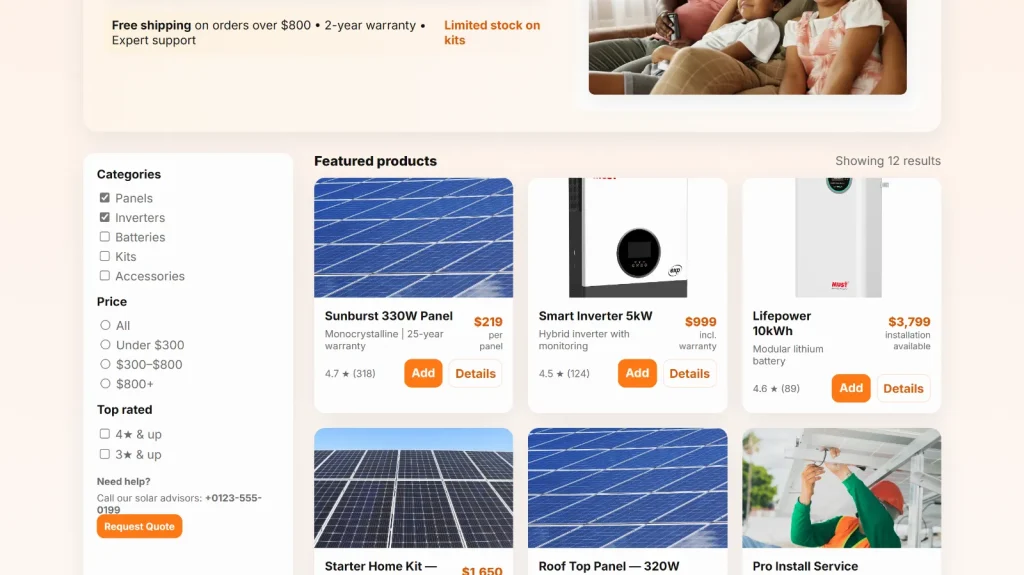
One of the most direct ways to make money online in Zimbabwe is through e-commerce. Find out what people are searching for online and sell that. You can sell:
- Clothing, computers and electronics, and accessories
- Handmade crafts or art
- Solar products and supplies
- Tools and equipment
- Digital products like e-books and templates
I know a company in Zimbabwe that literally gets most of its customers from Google searches through its website.
You can create an online store website were you list all of your products and their prices.
People can view or order the products they like. They can also come to your physical shop.
You can integrate a payment gateway or simply allow people to order via WhatsApp, which is more popular among Zimbabweans.
How do you drive traffic (or get people) to the website?
You can get customers from social media, Google through search engine optimisation, word of mouth, e.t.c
Platforms to help you build an online store
Pros
- Direct payments if targeting local(cash, bank, Ecocash etc)
- 24/7 availability – customers shop anytime
- Low competition online in some niches
- You get traffic on autopilot (if you’re using SEO)
- Global reach – someone in the diaspora can order or enquire from your website.
- Your earnings are not necessarily correlated to traffic. You can still earn more with the right target people.
Cons
- More work upfront to make sure your online store ranks in searches
- It can be relatively difficult to set up an online store for some people
- Can be competitive (especially if you’re targeting global)
Need an Online Store?
Check out the our plug ‘n’ play websites ready to deploy
Offer Paid Services
If you have skills in design, writing, programming, or consulting, you can create a website and:
- Sell service packages directly, e.g. graphic designing, web development, and copy writing.
- Offer online bookings for consultations
- Create subscription-based services for recurring income, e.g. social media page management
Display Advertising
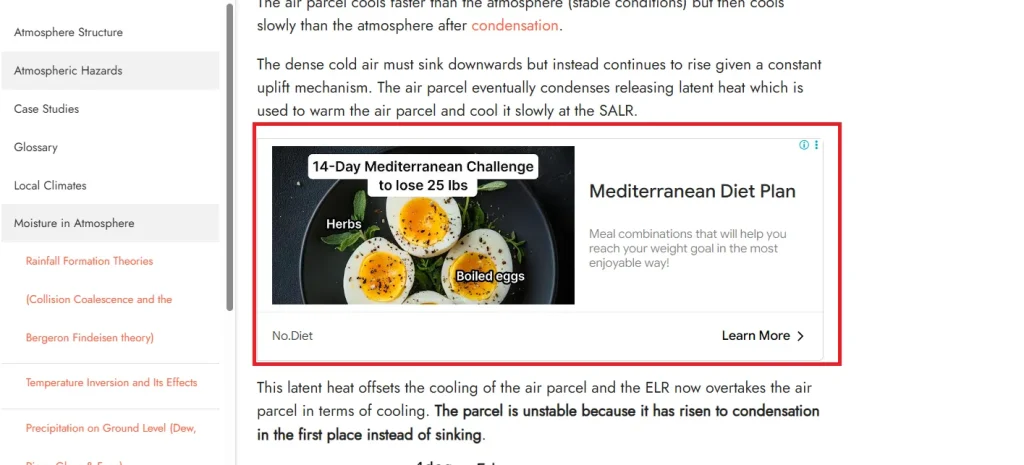
Display ads are a great passive monetisation strategy to turn traffic into revenue on autopilot.
Display ads are business adverts placed on your website directly or by third-parties such as Google.
You can create a blog and start showing adverts
Display Ads options include
Google AdSense
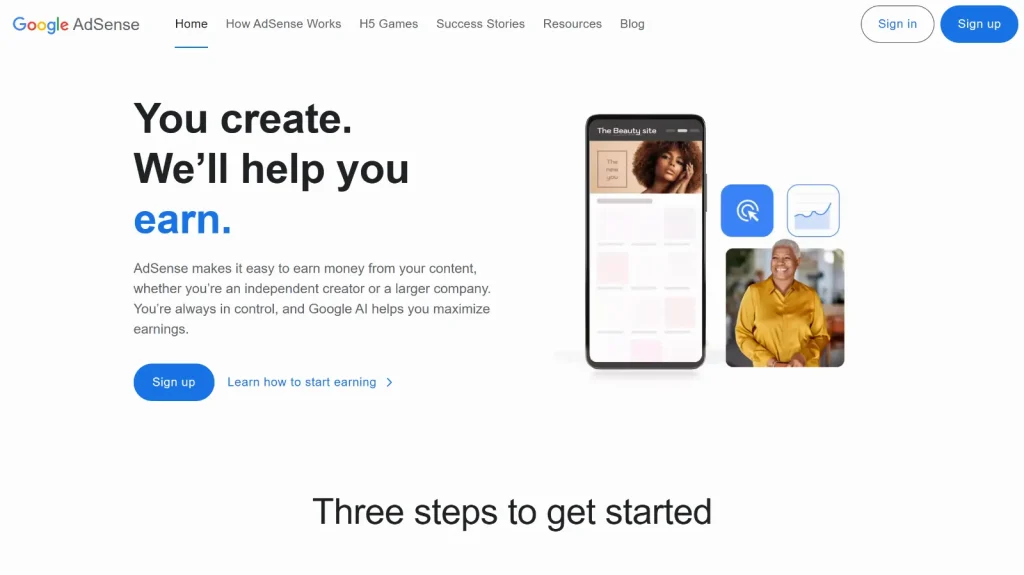
Google AdSense is a third-party platform that connects advertisers and publishers (website owners).
Adverts are placed on a publisher’s website and gets paid when someone views or clicks the advert.
The amount you get per click depends on various factors such as niche and traffic location. You can earn from as small as $0.10 to as big as $5.
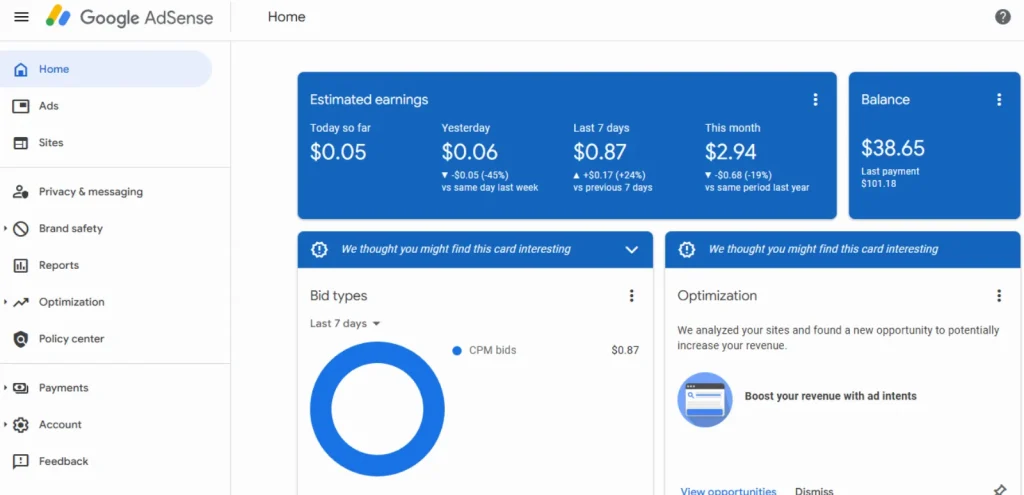
A small commission goes to Google while you keep the rest.
High-demand and high-ticket niches such as health and finance tend to pay more per click on average.
Traffic location is also key. If your website receives traffic from a country that doesn’t spend much online your earnings will also be lower.
Google handles all the sourcing of advertisers; you simply register with them to allow placing ads on your website. Here’s how to Register for AdSense
Approval may take some time or less depending on your site.
You site must be genuine with quality content for quick approvals.
Once approved, you place a piece code on your website and start to show ads.
You get paid once you have accrued a certain amount ($100 in most cases).
Google Adsense is widely supported in many countries and you can receive your payments through wire transfer (Visa or Mastercard).
There are other Ad platforms similar to AdSense such as Media.net
Selling ad space directly to local companies
Instead of using third-party platforms, you can directly sell Ad space to potential companies
For example, if you have a tech site you can approach companies such as Econet and Netone to place their banners on your website.
You can agree on a figure and duration of the advert.
In order to make significant money with Ads you need to have a lot of traffic coming to your website.
Pros of Display Ads
- You earn on every Ad view or click
- Passive and recurring revenue
- You setup once and get revenue long term
- Easy to set up Google AdSense.
- You don’t have to find advertisers, Google does everything for you
Cons of Display Ads
- You need a lot of traffic to see significant returns (however, this can vary depending on industry and CPC)
- You collect money after reaching a certain threshold amount.
- Ads can be blocked by people
- Too many ads can potentially increase bounce rates.
Affiliate Marketing
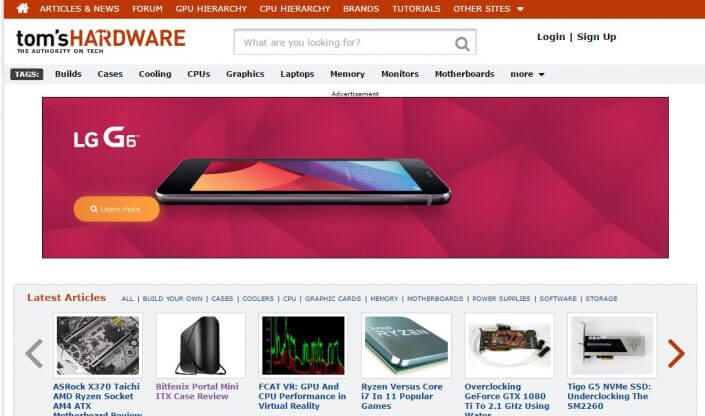
With affiliate marketing in Zimbabwe, you earn a commission when people buy products or services you endorse.
Personally, I haven’t used Affiliate marketing but here are some Affiliate Programs to try:
- Amazon Associates: You endorse certain products on your website and get paid when someone buys. There are also other affiliate websites such as Clickbank
- Local companies with referral programs
- Hosting companies like Bluehost, Afrihost, or HostGator can offer affiliate deals to promote their web hosting services.
To succeed with Affiliate you need to:
- Pick a niche/products you know best
- Write honest, helpful reviews of the products you’re endorsing
- Create product tutorials and comparisons
- Recommend products within relevant articles/ blog posts
- Match offers to your audience’s needs
Pros of Affiliate Marketing
- Passive and recurring revenue
- You setup once and get revenue long term
- Relatively easy to set up
- You don’t have to create products yourself or handle inventory. The merchant does everything for you
- Flexible work: can be done from anywhere, anytime.
- Ability to scale: You can endorse different products in different niches
Cons of Affiliate Marketing
- Not truly passive. You have to push and market your products to earn.
- Cost of marketing affiliate products. Sometimes you may need to run paid Ad campaigns to promote products.
- Competition: Many people can sign for affiliate marketing relatively easily.
- Lack of control: You don’t have control over the merchant’s product or how it is delivered. It can tarnish your image if something bad happens
- Takes time to build a real audience and trust
- Commissions can be low.
- Payment thresholds – you need to reach a certain amount.
Earn While You Refer
Earn 20% commission on every customer you refer to us

Sponsored Content
This is similar to selling ad space
Brands pay for exposure through:
- Sponsored blog posts
- Paid product reviews
- Event promotions and features
This works best if your site has authority or a strong following in a specific niche. For example, if you write about tech, you can strike brand deals with local ISPs like Econet and Netone.
Pros
- You get direct payment for publishing content.
- No payment thresholds
- High earning potential
- Brand partnerships: builds relationships with reputable companies.
- Less dependency on sales: you get paid regardless of conversions (or clicks).
- Exposure: you can attract bigger sponsors if you work with known brands.
Cons
- One-time payment: no long-term recurring income.
- Audience trust risk: if overdone, followers may see you as “too promotional.”
- Creative restrictions: brands may control messaging and style, which may not resonate with your audience.
- Reputation risk: promoting poor-quality brands can hurt credibility.
- Limited scalability: income depends on brand deals, not your own growth systems.
Selling Digital Products & Courses
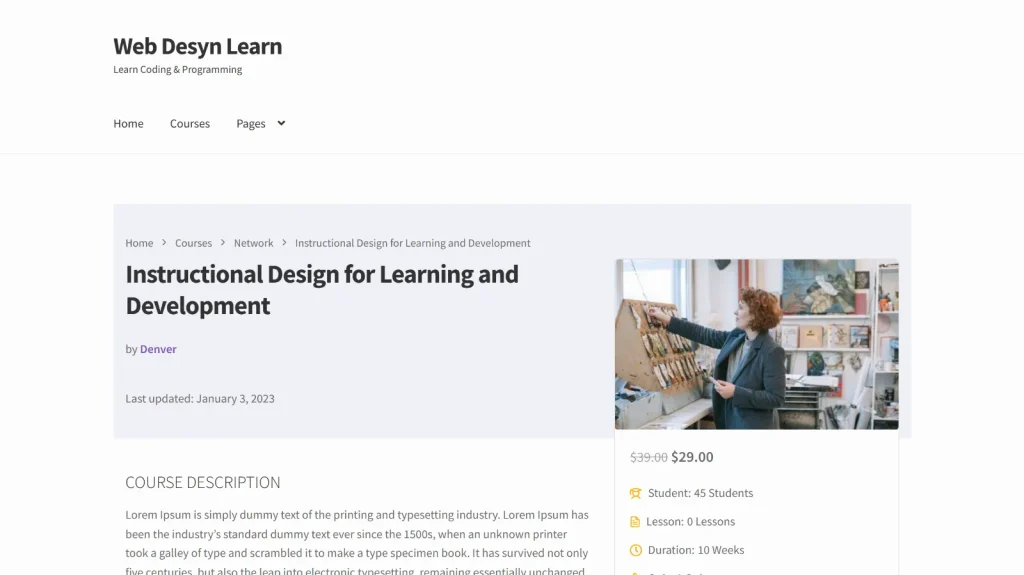
Education is another great avenue to make money online in Zimbabwe
People still want to be educated.
I often get DMs from people asking if I teach something.
From my experience, there’s a need for education and skill-building in Zimbabwe.
If you’re an expert in a certain topic, you can sell:
- Online courses and workshops
- Downloadable templates
- E-books and guides
You can create your own course website or hire a web developer to build one for you.
You can use WordPress and plugins such as WooCommerce or Easy Digital Downloads to build and sell courses.
Another option is to use third-party platforms, such as Teachable, which simplify course creation and deployment.
However, third parties may limit what you can do.
Pros
- Recurring revenue: you create courses once and get paid long term
- Scalability: you can sell unlimited copies without extra production costs.
- No shipping or handling costs
- Global reach: your courses can be seen and purchased by anyone around the globe.
- Sustainable: people will always want to be educated and build skills
Cons
- More work upfront in creating the courses
- Can be competitive
- Skepticism around online courses
- Piracy: people can download and share your digital products, such as PDFs and videos, illegally.
- Marketing costs can add up
Membership or Subscription Models
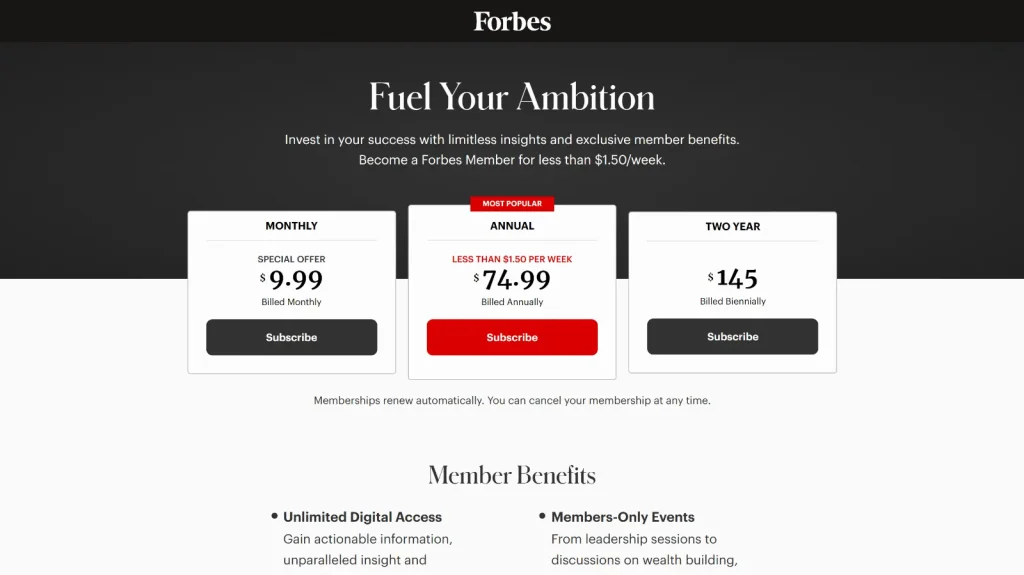
If you have an engaging website, such as a blog or news website, you can create premium content where members pay a monthly or yearly fee. You can offer
- Premium articles without annoying adverts
- Business tips and investment advice
- Premium News
- Private forums and networking groups
- Access to premium research and reports
Pros
- Passive and recurring revenue
- No need to find clients; people already visit your website
- Increases user engagement by removing annoying Ads
- Opportunity for upsells & cross-sells: You can offer people your other products.
- Encourages community & loyalty
Cons
- More work upfront to provide value that’s worth subscribing to
- You need to constantly build value for the subscription to make sense for people
- People can cancel their subscriptions anytime.
- Does not work on all websites. Works better for specific website types such as News and Blog sites.
- People may be reluctant to subscribe (especially in Zimbabwe)
Conclusion: What do I choose?
The above methods can help you make money online in Zimbabwe using a website. The method(s) you use depends on varying factors.
Some monetisation methods, such as display Ads, are correlated to the amount of traffic you have, while an online store or courses can earn you more even with less traffic.
You can do a hybrid approach; by combining different monetisation methods on one website. For example, TechZim uses display ads and also sells phones.
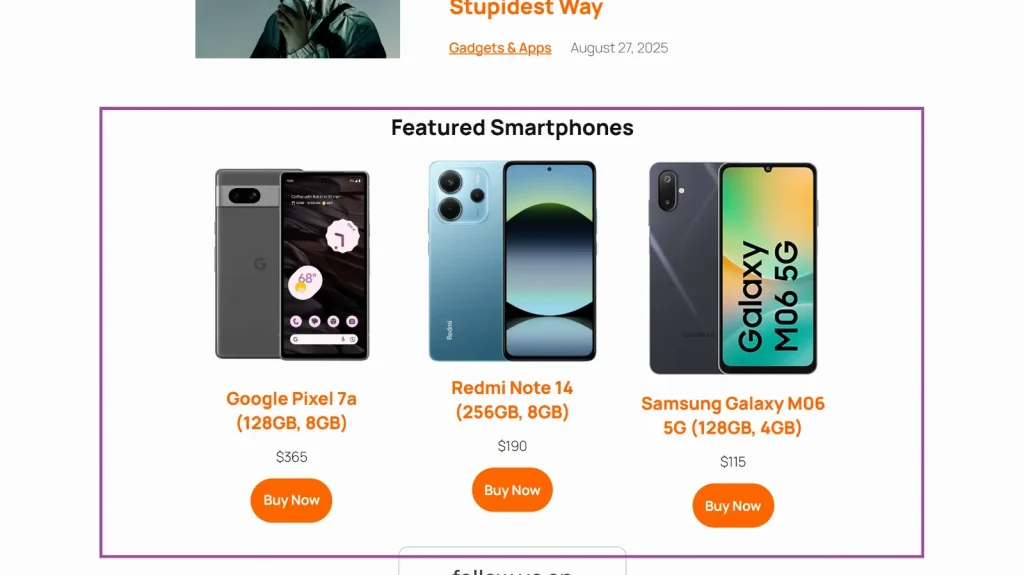
Like anything else, you need to put in more effort to see significant returns.
I’ll write individual articles explaining some of the methods above in detail
FAQs
What is traffic?
Traffic is people to your website
Can I really earn money online in Zimbabwe from a website?
You can make money online in Zimbabwe through e-commerce, display adverts, selling online courses, or subscriptions
What is recurring/ passive revenue?
Recurring or passive revenue is money that keeps coming in on a regular basis without requiring constant active effort to earn it.
What is SEO?
Search engine optimisation is a collection of methods used to make a website visible and appear on top in searches.
What is the best way to drive traffic to my website in Zimbabwe?
The most effective long-term strategy is Search Engine Optimisation (SEO). You can also use social media, paid ads, and word of mouth. SEO is powerful because it attracts people actively searching for your products or services.
Which monetisation method works best in Zimbabwe?
It depends on your niche and target audience:
- E-commerce works well for local physical products.
- Display ads need higher traffic.
- Sponsored content works best if your site has authority.
- Selling digital products and courses is scalable globally.
How do I get paid from online platforms in Zimbabwe?
Google AdSense and other international platforms pay through wire transfers to Visa or Mastercard. PayPal is limited in Zimbabwe, so most website owners use bank accounts, EcoCash, or third-party processors depending on the business model.
How much traffic do I need to make money with ads?
You typically need thousands of monthly visitors for meaningful AdSense income. However, if your traffic is from high-paying countries (e.g., US, UK, South Africa) or high-demand niches, you can earn more with fewer visitors.
Can I sell products online without an advanced payment gateway?
Yes. Many Zimbabwean e-commerce sites allow customers to order online and then pay via EcoCash, bank transfer, or in person. You can also integrate WhatsApp ordering, which is widely used locally.
7. Do I need technical skills to start an online store or blog?
Not necessarily. Platforms like WordPress (with WooCommerce) and Shopify make it easy to set up a store without coding. You may need a developer for advanced features, but many starter templates are plug-and-play.
Is affiliate marketing possible in Zimbabwe?
Yes, though global affiliate programs like Amazon Associates are more common. Some local companies also run referral or affiliate programs. Your success depends on choosing the right niche and building trust with your audience.
What kind of digital products can I sell in Zimbabwe?
Popular options include e-books, templates, online courses, guides, and design assets. The advantage is that once created, digital products can be sold repeatedly without extra costs.
Are Zimbabweans willing to pay for subscriptions or memberships?
Subscription models work best for niche sites offering premium, valuable content such as business advice, news, or research. While adoption is still growing locally, this model is more attractive when combined with global audiences.
This page was written with the assistance of AI. Read more about our AI usage policy
